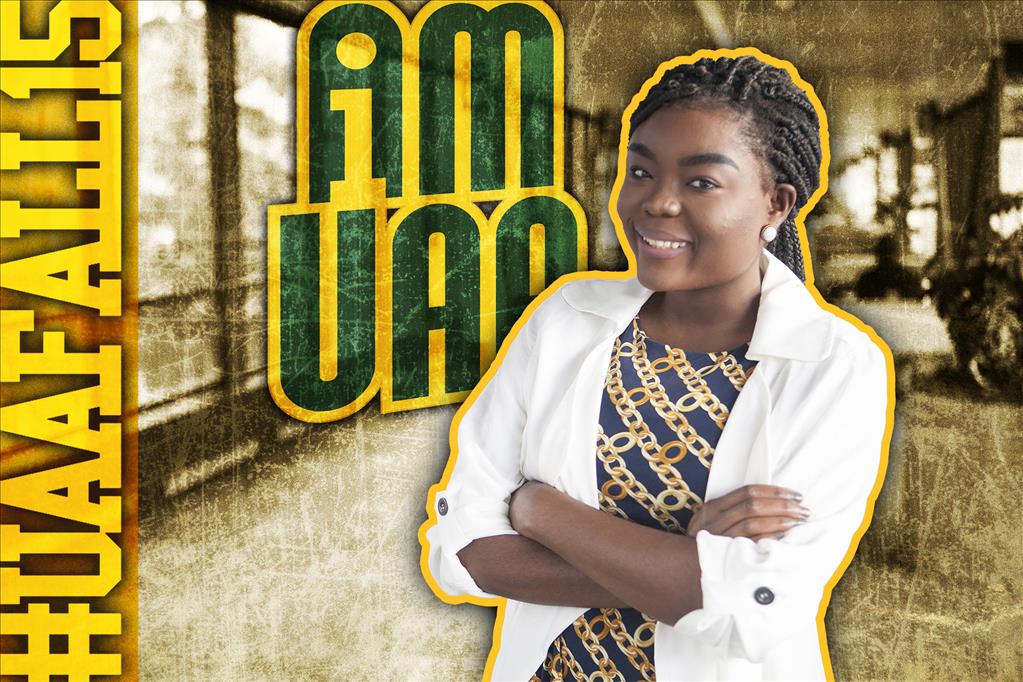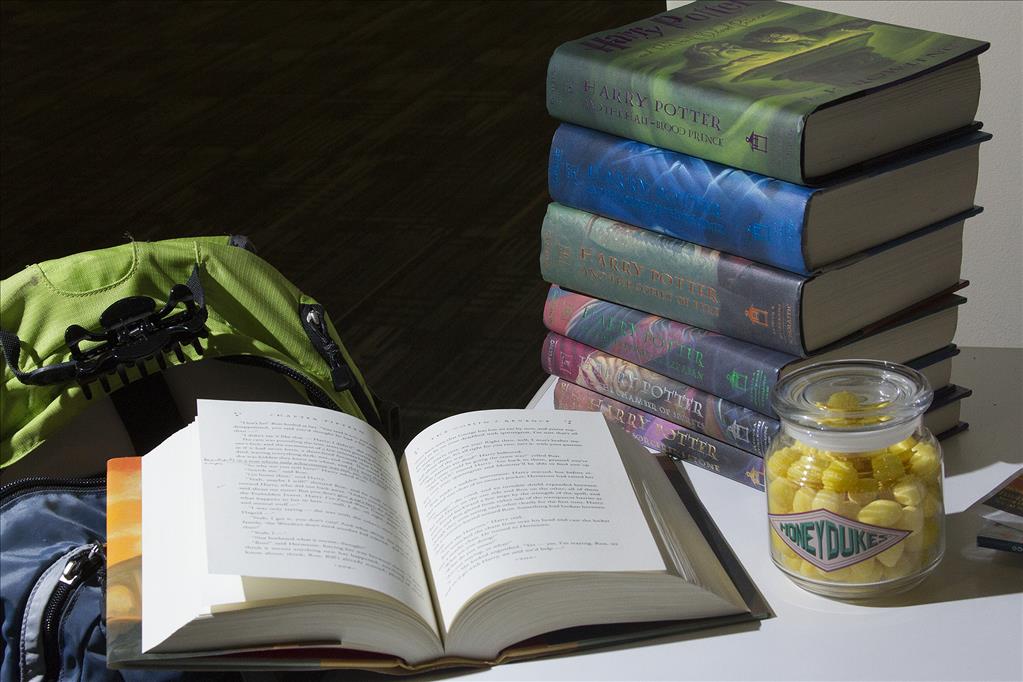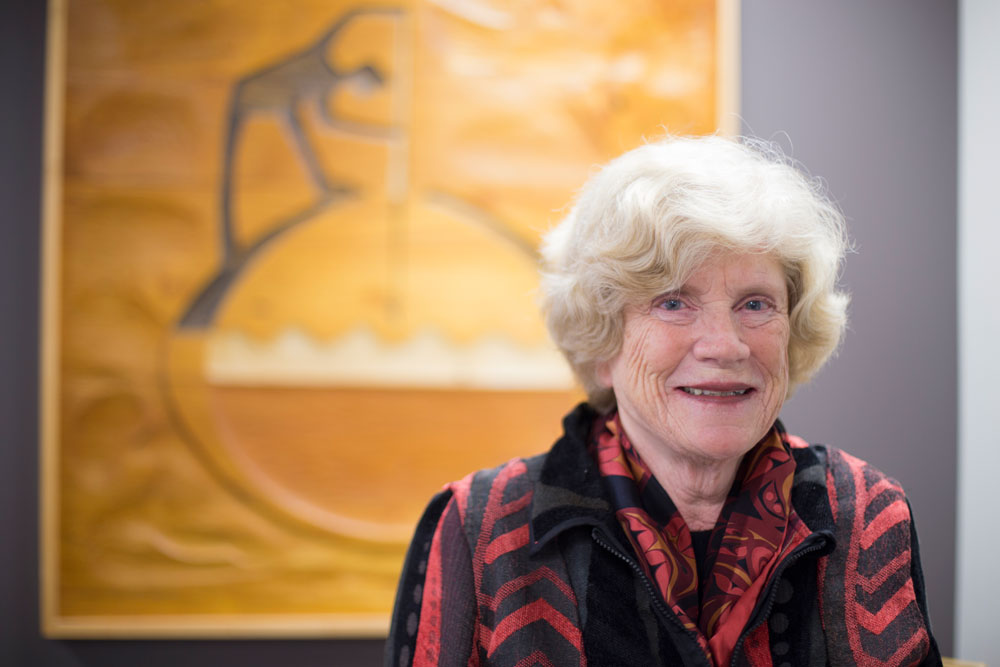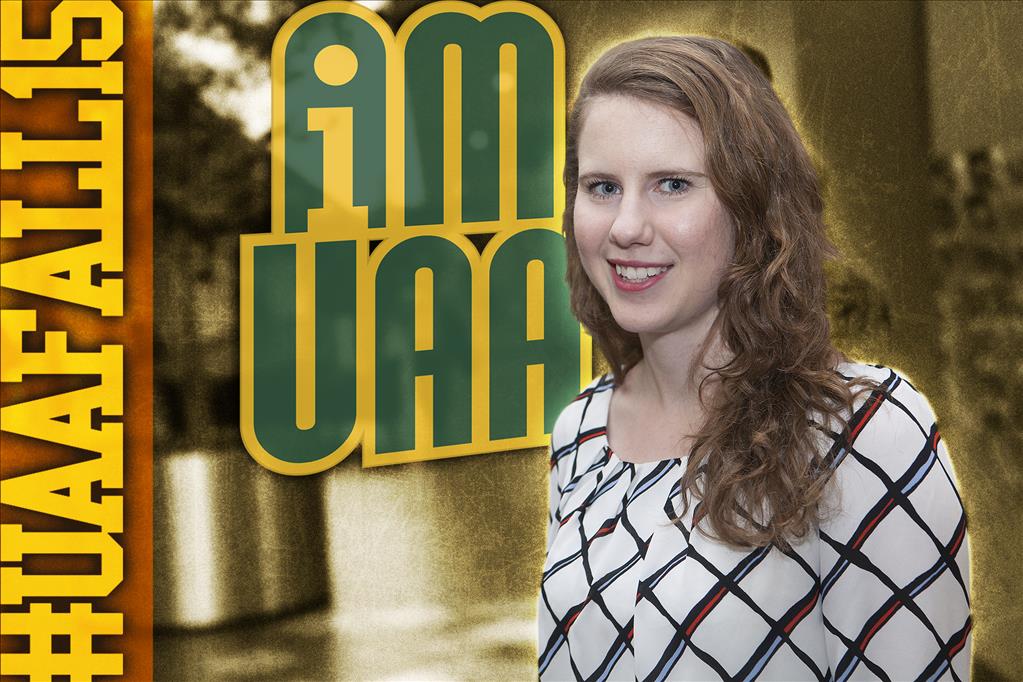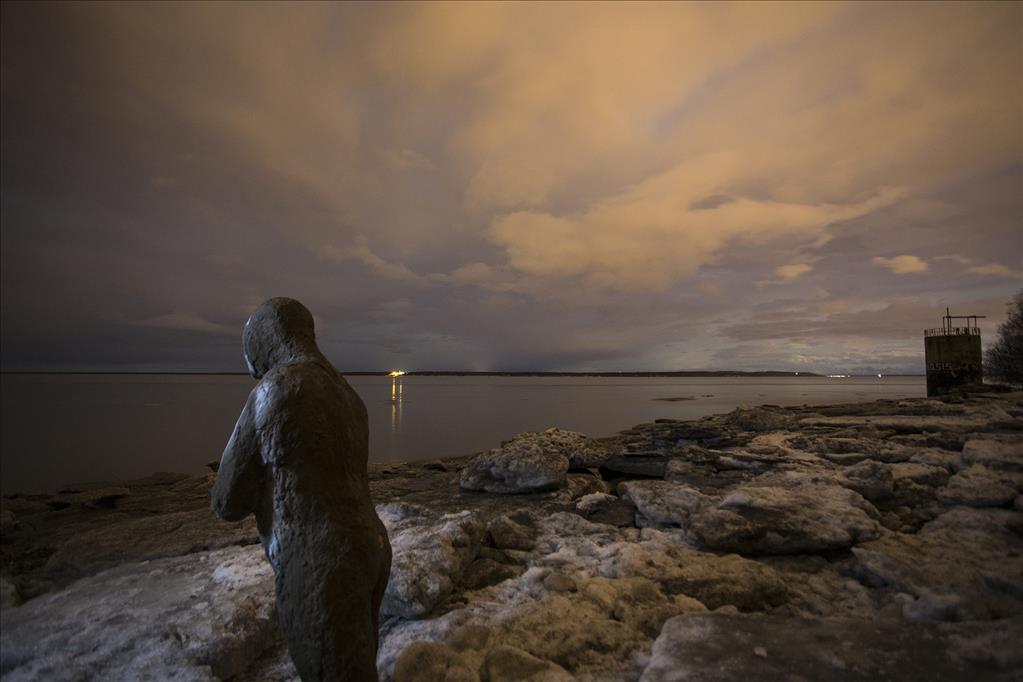Stacey Lucason: USUAA president glances back before leaping ahead
by Kathleen McCoy |
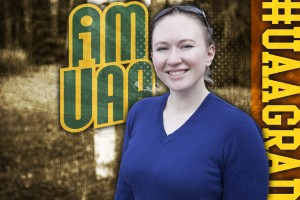 Stacey Lucason, USUAA's current student body president, will graduate May 3 with a
degree in philosophy and a bunch of premed classes on her transcript. But don't think
that's the last you'll see of her here on the Anchorage campus.
Stacey Lucason, USUAA's current student body president, will graduate May 3 with a
degree in philosophy and a bunch of premed classes on her transcript. But don't think
that's the last you'll see of her here on the Anchorage campus.
For one thing, Lucason is UAA's candidate for the open seat on the UA Board of Regents, a two-year term held by a student from one of the three university campuses: UAA, UAS or UAF.
The last three student regents came from Fairbanks. If selected by the governor, Lucason would begin that role on June 1, 2015. Word on that decision is expected any day now as the Legislature winds down.
But Lucason is also looking for a path to graduate school at UAA. She's considering public policy and public health, with perhaps the ultimate goal of medical school.
Choosing Alaska as home
She's made Anchorage her home, pinning her dreams of higher education on UAA and WWAMI. She and her partner, Jim, newly married over spring break, are also new owners of a home in Fairview. Fairbanks-born but Washington state-raised, Lucason chose UAA for her undergraduate and potential graduate work so she could be near her Alaska grandmother.
To say her year of leadership has been tumultuous would be an understatement. Lucason and Jolaine Polak, USUAA vice president, came into their roles energized and determined to find a way to engage students and accomplish goals. Along the way, the bottom dropped out of the price of oil and the state's public university came face to face with serious cuts likely over the next several years.
As distracting as that turn of events continues to be, Lucason managed to stay engaged and focused. She traveled to Juneau twice with other student leaders to lobby for university support and helped organize a student postcard campaign to influence legislative action.
Making student involvement easier
She also worked all year restructuring the student leadership commitment on USUAA to make it work for more students to participate.
The role of a student senator is demanding, she realized. Not every student can commit up to 20 or more hours a week. So she and her USUAA colleagues have crafted a new leadership position, called a delegate, allowing students to still engage at UAA, but at a level more realistic with their academic, work and family demands.
Instead of an all or nothing arrangement, Lucason worked toward a middle ground that might maintain an interested student despite his or her time limitations.
Her own path into student government was a lesson in the value of these peer connections.
Lucason first engaged in campus life when she heard the PreMed Club would disband for a lack of officers. At the time, she was still working full time as a nursing aide in the operating rooms of the Alaska Native Tribal Health Consortium, and taking one class at a time. Nonetheless, she stepped up. Her work schedule meant she often stayed connected mostly via email, but it was still a connection.
Similarly, sitting on Club Council as a representative, she volunteered to help organize Halloween Fun Night, a big event for UAA and Anchorage community members held in the Student Union in late October. Each extension of her commitment was a good experience, and further enveloped her into student life at UAA, she said.
"These connections are easy to lose" in cost-cutting environments, Lucason said, "if you are strictly looking at numbers, how much does it cost versus how much money does it produce. Not everything produces money, but some of these things really keep people connected and get them to come back."
She credits her new UAA peer-connections with helping her during a rough patch, when she was floundering in a math class. "Oh, you took it from so-and-so," she says they told her. "Drop that class and take it from this other professor." She did, and finished fine.
Eventually, thanks to scholarships and saved money, she was able to attend school full time and take on the role of USUAA speaker and eventually run for president. But she concedes that it was often those early commitments to students and student organizations that helped her over difficulties in school, when it might have been easy to throw in the towel.
Looking critically at her alma mater
The budget shortfall facing UAA has many campus community members discussing where to save or what to cut. For her part, Lucason hopes UAA retains support for a broad four-year liberal arts education that might lead a student in many different directions, as well as aim to serve those students with a more direct career path in mind.
"A lot of people UAA serves have started college but haven't finished yet. They may be military, or spouses of military, maybe a stay-at-home-mom who is now ready to go back to school. If we lose that broad approach to higher education, we may lose the ability to serve some of those people," she said.
She also thinks community-centered continuing education programs that bring people to campus are good ways to introduce the university broadly and build a constituency for it.
As a student leader, she says she has seen plenty of areas to streamline and centralize that would help UAA with its budget shortfall. She's also seen many success stories that don't get the attention they deserve.
"We [at UAA] do a lot very well that we just don't advertise," she said. For example, she and her leadership teammate, Jolaine Polak, last fall argued for more pre-professional tracks into law and medicine. Now, she believes those paths are there and students would benefit just as well from a brochure that laid them out plainly.
"We don't have to start a new program for this, with staffing and all kinds of strings attached. We could do it with the yearly cost of a flyer. Have it come from advising and then advertise it," she said.
She believes the coming cutbacks will be a shock to students. But students aren't unique, she says; the whole state isn't ready for what Alaska will have to weather, she says.
What would help, Lucason thinks, is moving critical information to students more quickly. She criticized the way administrators handled announcing the suspension of chemistry. "Chemistry students heard last," she said. "Even the official word was 'It might happen, it might happen.'
"We aren't children. We are young, but we are old enough that we need real information. I'm making choices that affect the whole rest of my life. Information needs to be concrete, and it needs to be early."
Finding her own way
As she migrated from part time to full time student status, Lucason made her own mistakes, such as taking the wrong series of chemistry classes. She stuck with them anyway.
On the other hand, it was meeting a philosophy professor, Stephanie Bauer, in an Ethics GER and a subsequent class on feminism that convinced her she could embrace her goal of becoming a doctor. Bauer had been a chemistry major in college, and confirmed to Lucason that she was indeed performing well enough in the hard sciences to achieve that goal.
It was also a Bauer class in which Lucason first encountered "care ethics," in other words, the ethics of how we take care of each other. What she learned in class resonated with what Lucason had always heard from her mother: It matters how we treat each other. With a future planned in health care, the class was especially meaningful to Lucason.
A philosophy class this year, on responsibility, proved very eye opening to Lucason. She chose the topic of personal responsibility in the area of addiction, and discovered that she had some strong personal biases. "Even my search terms were biased," she said.
Bottom line, she believed addicts were responsible for their addiction. But her research made clear to her that not everyone begins from the same place.
"It started me questioning how the world works and how people act," she said. "It really challenged my expectation that everyone is on equal footing."
For example, she always assumed that because she had found her way to college, anyone could; or that, because she has a predisposition to take on a project, everyone reacts similarly to that opportunity. It influenced the restructuring of USUAA assembly positions to allow students with less free time to still get involved successfully in the new delegate positions.
Changing times
Understanding that UAA, and the entire UA system, will undergo some form of transformation into a university that Alaska can afford, Lucason is concerned.
"My biggest worry is all the things that we are starting to do really well, but there's no evidence yet to show people-not just legislators, but people looking in.
"I worry that [in cost cutting] we will mow them over. It can be hard to see the sprouts of those things happening. I don't want to lose those emerging things that are really good and have possibilities for the whole next generation."
What comes to mind?
"We're really starting to have student engagement on this campus," Lucason said. "I remember early on, walking through the Student Union and seeing a few events and things happening, but not a lot of student participation.
"Now, students want to be a part of it," she said. "That would be easy to lose."
Written by Kathleen McCoy, UAA Office of University Advancement
 "Stacey Lucason: USUAA president glances back before leaping ahead" is licensed under a Creative Commons Attribution-NonCommercial 4.0 International License.
"Stacey Lucason: USUAA president glances back before leaping ahead" is licensed under a Creative Commons Attribution-NonCommercial 4.0 International License.










